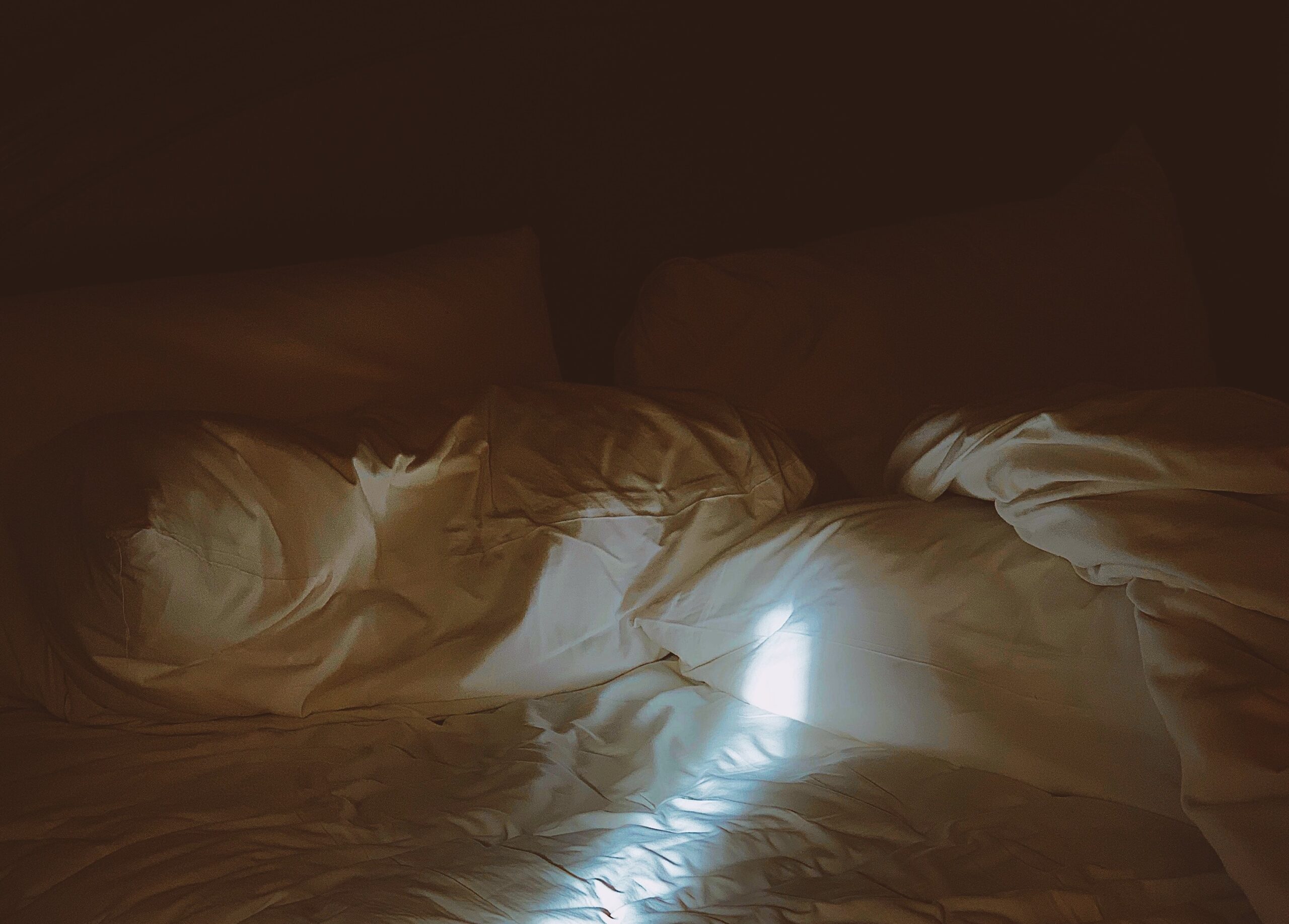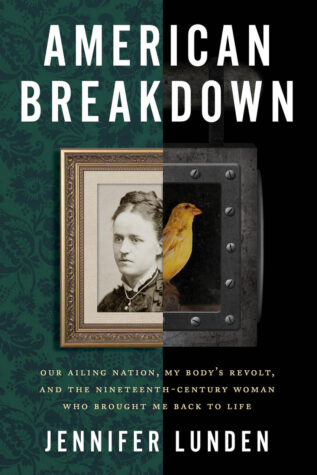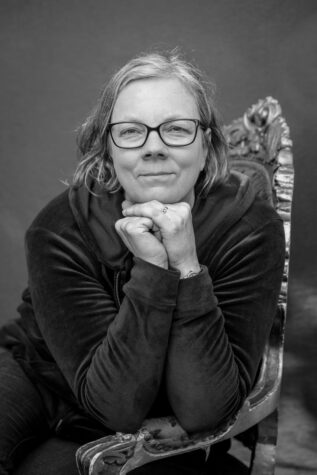
Jennifer Lunden is the author of the astounding new book American Breakdown: Our Ailing Nation, My Body’s Revolt, and the Nineteenth-Century Woman Who Brought Me Back to Life. She’s also a good friend. This is Part 1 of our conversation about work, exhaustion, and writing while ill.
Kate: I know American Breakdown has been a very long time in the making. When did you start writing this book?
Lunden: In some ways, it started when I found a biography of Alice James in a used bookstore in 1994. Alice was the sister of the writer Henry James and the psychologist William James, and she was, most of her life, bedridden with an illness that felt very similar to the one that I was dealing with. Hers was called neurasthenia; I had been diagnosed with what we now call myalgic encephalomyelitis/chronic fatigue syndrome (ME/CFS). Reading that book was the seed, because I felt like I’d found my soulmate or kindred spirit, this person who completely understood in an embodied way what it was like to be as sick as I was.
L: I became really curious about the similarities between our illnesses and whether they could be the same thing. At the time, I was finishing my English degree, and then I was studying for my Master’s in Social Work, so I didn’t start researching that question until 2001. I had ideas then about what I wanted to write about, but I didn’t feel confident in my expertise. Eventually, there just came a point when I did feel like I knew enough. So I started writing the book in 2007 and kept going until I finished in 2022.

K: How does it feel, now that the book is finally out in the world?
L: It’s weird. First of all, it was such a relief to get the final draft in, but then my publisher immediately bombarded me with “Now you have to do all these other things.” And I was like, “Wait a minute. I thought I was going to get to rest!” That’s what I’ve been telling myself for years: “Get the book in, and then you can rest.” There was no rest. And that impacted my health.
L: A lot of writers don’t like [doing publicity work], but I do. To have my body give out just when I was going to get the word out about the book has been hard. But it’s also been good; it’s like the next layer of my personal emotional work, listening to my body and connecting to all the parts, including the part that needs a break and the part that drives me to accomplish things.
K: How do you know when you’ve hit that point where you need to stop and rest? And how do you actually convince yourself to do that?
L: It’s so hard. Especially if I’m in a middle of a paragraph and I just want to get to the end of it. Or if it’s only six o’clock, as I usually try to write until nine. If I’ve only gotten two hours of writing in instead of five, the temptation is to push myself. But I’ve gotten enough feedback from my body over the years to know that that only makes things worse.
L: The main sign for me that I need to stop is this feeling like I’m physically holding myself up. It’s almost like I’m in a suit of armor. I told one of my doctors that years ago and she said, “That’s adrenaline.” That’s been so helpful to know. What that means is that my whole nervous system has moved into fight or flight to keep me going. And that’s only going to make me tired, so I need to stop. It helps a lot to imagine that there’s a little kid inside of me who’s tired and needs a break. A few hours or a day of rest often isn’t enough, but it works better than pushing myself.
K: I read something recently that said, “The question to ask yourself is not ‘Have I worked enough to deserve rest?’ but ‘Am I rested enough to resume work?’”
L: “Have I worked enough to deserve rest?” is such an American thing. An even more American interpretation is “Have I overworked enough to deserve rest?”. I mean, we might be the most overworked country in the world. There’s good data to indicate that. And as I write in the book, if we’re driven into the ground, it affects our health and can make us predisposed to developing long-term illnesses, like I did after a case of mononucleosis.
L: Writing the book helped me be more compassionate toward doctors. Personally, I only had one doctor who treated me poorly (because then I got more selective), but she was [the first doctor I saw about this illness], and it was traumatic. By the time I started writing American Breakdown, I’d heard a lot about how doctors treat people with ME/CFS, and it made me really despise them. But as I did more research, I learned more about how economics and big pharma influence how doctors are educated, how many hours doctors are expected to work when they’re students, and the impact these things have on their mental health and their ability to be empathic. They’re trained not to be empathic, because the belief has been that empathy is what leads to burnout. In reality, being able to have time and connect with patients is the reason most of them got into the profession, and is preventative against both burnout and poor treatment of patients.
L: So if we think about these doctors, who are working so hard, especially since the start of the pandemic, and then we come back to this idea of the importance of rest—we all need more of it. But the economics of our country make that really hard.
K: So much. While we’re talking about work and rest: I think you and I first really started to connect when I wrote to you and said, “I’m sick and disabled, and I want to write a book. What advice do you have?” Do you remember what you said? Has your advice changed?

L: To me, the first and most important thing is that we need the voices of more sick and disabled writers. People need to know we’re here. I recently watched the documentary Crip Camp and learned something important. Before the camp in the film existed, young people with disabilities were shunted away from society—sent away to special schools with disempowering structures, or isolated in their homes. But at Camp Jened, young people in the ’70s were supported to engage with each other and the natural world around them. They participated in consciousness-raising groups, where they discussed their experiences of stigma and injustice. And the camp changed them. They found each other. And then they went out into the world and agitated for change.
L: Judy Heumann, now known as the mother of the disability rights movement, was one of those campers. She recently died, but her legacy—as well as the legacies of all the people who fought hard for equal rights for people with disabilities—lives on. Because of them, we have the Individuals with Disabilities Education Act of 1974, and because of the groundwork they laid, we have the Americans with Disabilities Act of 1990, which, although not a bullet-proof protection, has long undergirded my confidence to ask for what I need for accommodations at school and work. My ability to ask for accommodations allows me to bring what I have to offer to the world to its fullest fruition. And that law is therefore not just good for people with disabilities, it’s good for the nation and the world.
L: When people from any marginalized group share their stories, it helps us find each other. It makes us visible to the world that wants to shunt us away. And when we tell our stories, it can move people to care.
L: The next thing is to rest when you need to rest, and to make sure you have support. If your disability is PTSD, and you want to write a book about trauma, that’s really important, and you may feel better on the other side. But I recommend you have a therapist to help you work through it, and other people you can talk to.
L: This advice goes for anybody: if you want to write a book, you can write a book, but why not start with something smaller? If you want to write memoir or creative nonfiction, start with essays. If you’re want to write fiction, start with short stories.
L: In either case, you could start with poetry. I highly recommend it. I started as a poet. Writing poetry helped me hone my ability to write, to hear a rhythm when I’m writing, to obey it, to listen to sound, and to be sparing with words. Poetry connects us with our own bodies. And this may not be true for all chronically ill or disabled people, but it’s true for me: it’s hard for me to be in my body. I love being in my head. But I’ve gotten a lot better at being in my body over the years, partly through writing poems.
This interview will continue next month.
*
Image credits: Unsplash (bed photo), Harper Wave (book cover), Melanie Lunden (author photo).
Thanks for this interview! Reading this helped me in more ways than I can say.
Oh, I’m so glad to hear it!
Thank you, Kate and Jennifer. I’ll be buying this book as soon as possible. I’m convinced that patriarchal, capitalist thinking is responsible for creating this (and other) chronic illnesses.
Conny, I think you’re going to get so much out of this book! Thank you as always for reading. <3